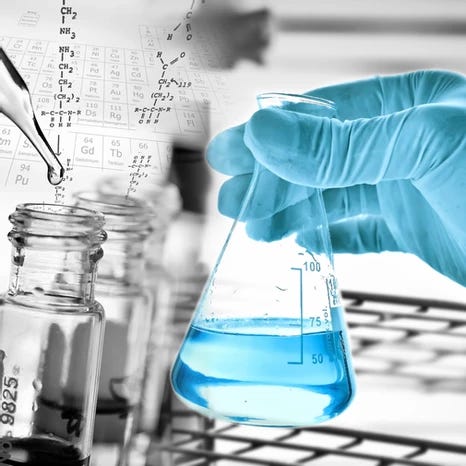Dieting Demystified: Diets That Work
Part 1
Everyone and their mother seems to understand nutrition. People think just because they have a fork at home they can tell you what to eat, where to eat, and how to eat. Truth is nutrition isn't something you magically pick up because you watch cooking shows, nutrition is actually a field of science.
What does this field tell us? It tells us nutrition is complicated and how each of us eat depends on multiple different factors.
Many people try to oversimplify the subject by imposing a supposed 'problem' leading to all of your issues. Some people demonize carbs, meat, dairy, fat, or diets in general while others praise these same things. It's very difficult as an ordinary person to separate fact from fiction. So many dieting books with conflicting information from people without clear expertise in nutritional science (1). So let's go over what diets actually work and some of what the science has stated regarding this issue.
Weight Loss
A great number of these books are geared towards weight loss as this fits into the obesity epidemic. Obesity is a notable public health issue with a prevalence of about 40 percent in the United States alone (2). Obesity is associated with poor health outcomes (3) so it makes sense many interventions are targeted at this growing demographic.
Obesity is a complex and multi factorial disease so it's beyond the content of this blog to explain that in its entirety currently (4). Just know many books surrounding nutrition, also nutrition information in general, target specifically weight loss for reasons mentioned and other reasons.
People could also follow particular diets to gain weight, maintain weight, or achieve some sort of health outcome. However, the biggest question on everyone's mind is... which diet is best?
Energy Balance and Calories
Perhaps the better question would be, why do diets work? It's simple many diets work in the context of weight loss, gain, or maintenance not due to magic but because of energy balance. Energy balance is based on fundamental thermodynamics which states energy cannot be created nor destroyed but gained, lost, or maintained (5). Energy balance is maintained when energy intake equals energy expenditure. This energy intake and expenditure is measured by the heat unit calories but the calories you see on food labels isn't the same it's actually measured in kilo-calories (6). Kilo-calories or Calories (capital C) stands for the amount of heat needed to raise the temperature of 1 kg of water from 0 to 1 degrees Celsius (6).
Like previously mentioned energy intake and energy expenditure are measured in calories so we often refer to energy balance as “calories in vs calories out” (CICO). So energy intake refers to calories in and energy expenditure refers to calories out (7). I’ll talk about energy balance and CICO simultaneously since they're practically the same concept.
This is NOT the same thing as calorie tracking because calorie tracking refers to estimating your energy needs from a mathematical model and using a method to track calories on food packaging based off of that model.
Losing weight based off of the CICO model requires an individual to be in a caloric deficit, this means consuming less calories than is needed to maintain their current weight. In order to gain weight a person must be in a caloric surplus so they must consume more calories than is needed to maintain their current weight (7).
An analogy I would like to use would be a balloon. Imagine if airflow in (caloric intake) is balanced with airflow going out (caloric expenditure) to keep the amount of air inside a balloon relatively stable this would be a balance of airflow (caloric maintenance). If more airflow goes into the balloon than what goes out the balloon gets bigger, this concept can be applied to the body where in a caloric surplus we can gain muscle or fat. If more airflow leaves the balloon than what goes in the balloon gets smaller, applying this to the body in a caloric deficit means we can lose muscle or fat. Notice this is an analogy to get you to understand the concept, metabolism is way more complicated than this example but this is the basic premise of CICO.
I’m sure the main concern many of you may have would revolve around the idea you have to track calories to lose weight. While calorie tracking is a good method for some it doesn’t work for many other people, CICO is also not the same as calorie tracking. All diets that help you lose/maintain/gain weight have to abide by energy balance (8). There are multiple factors that could affect energy balance and one of these factors is macronutrient composition. This will probably warrant a separate post on the subject.
Stay tuned for part two where I go over macronutrients and micronutrients.
References:
(1) Marton, R.M., Wang, X., Barabási, A.et al.Science, advocacy, and quackery in nutritional books: an analysis of conflicting advice and purported claims of nutritional best-sellers.Palgrave Commun6,43 (2020).https://doi.org/10.1057/s41599-020-0415-6
(2)https://www.cdc.gov/obesity/data/prevalence-maps.html#overall
(3)https://www.nhlbi.nih.gov/sites/default/files/media/docs/obesity-evidence-review.pdf
(4) Rubino, F., Puhl, R.M., Cummings, D.E.et al.Joint international consensus statement for ending stigma of obesity.Nat Med26,485–497 (2020).https://doi.org/10.1038/s41591-020-0803-x
(5) Hill JO, Wyatt HR, Peters JC. The Importance of Energy Balance.Eur Endocrinol. 2013;9(2):111‐115. doi:10.17925/EE.2013.09.02.111
(6) Hargrove, James L. “Does the history of food energy units suggest a solution to "Calorie confusion"?.”Nutrition journalvol. 6 44. 17 Dec. 2007, doi:10.1186/1475-2891-6-44
(7) Howell S, Kones R. "Calories in, calories out" and macronutrient intake: the hope, hype, and science of calories. Am J Physiol Endocrinol Metab. 2017;313(5):E608‐E612. doi:10.1152/ajpendo.00156.2017
(8) Hall, Kevin D, and Juen Guo. “Obesity Energetics: Body Weight Regulation and the Effects of Diet Composition.” Gastroenterology vol. 152,7 (2017): 1718-1727.e3. doi:10.1053/j.gastro.2017.01.052




